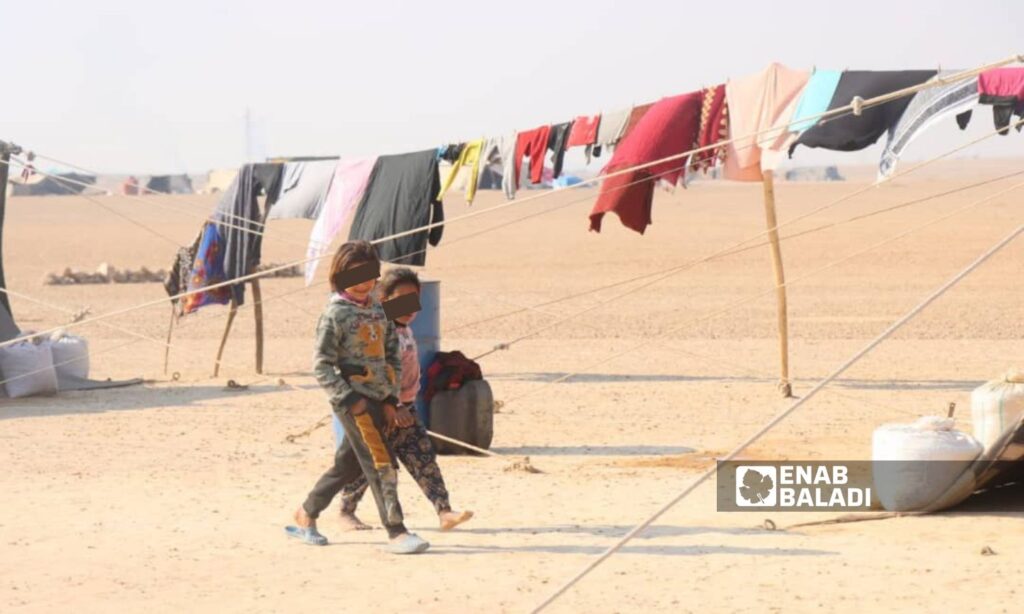More than 50 families living in the al-Sabha camp in northeastern Deir Ezzor have been unable to return to their homes because of the destruction and the spread of landmines left by the Syrian regime forces and Iranian militias in the city of al-Bukamal in eastern Deir Ezzor.
Currently, there is no possibility of returning, as the “nightmare of displacement” continues, according to residents interviewed by Enab Baladi, alongside the deteriorating living conditions, with a lack of job opportunities, distanced markets from the camp, and the necessity for residents to traverse long routes daily to secure their needs.
Financial inability to return
Ragheb al-Khalil, a resident of the camp, was shocked by the extent of the destruction of his home in al-Bukamal, as he visited to inspect it after it had been a base for Iranian militias. He stated that he did not dare to enter due to the rubble and the presence of landmines around it.
A-Khalil was displaced from his home when regime forces took control of al-Bukamal in 2017, but he remains unable to return amidst the dilapidated state of his house.
He told Enab Baladi that he reported the condition of his home to the relevant authorities and is awaiting intervention from engineering teams to remove the mines, pointing out that restoring his home would require more than $6,000 USD (72 million Syrian pounds).
He mentioned that the camp houses over 50 families who have not been able to return to their homes since the fall of the Syrian regime on December 8, 2024, until the present January due to destruction and the spread of explosive devices.
Kamal al-Ali, another resident of the camp, said that the residents will remain away from their homes because reconstruction requires significant funds and they have exhausted all their possessions during years of displacement.
Meanwhile, Abdul Karim al-Aaskar, who was displaced to the al-Sabha camp in 2018, told Enab Baladi that most homes in al-Bukamal are destroyed due to shelling, and the previous regime and its allies have stolen windows, doors, and even tiles from the floors and electrical wiring.
According to the residents, returning home cannot happen without intervention from local authorities, countries, and organizations to rebuild what has been destroyed and revive life in cities and towns.
Residents of the al-Sabha camp in rural Deir Ezzor live in deplorable conditions – January 19, 2025 (Enab Baladi/Obadah al-Sheikh)
According to residents, the camp has not received any aid for six years except for 300 liters of diesel fuel, provided by the Syrian Democratic Forces (SDF) to each family in 2023.
They noted that committees used to come to register family records and make promises of support and services, such as bread, water, and food assistance, but with no results.
In recent weeks, there has been an increase in the number of victims of mines and remnants of war in the divided rural Deir Ezzor, with the SDF controlling the eastern part, and the Damascus interim government controlling the western part.
The return of displaced persons to their homes is hindered by the minefields left behind by the previous Syrian regime and Iranian militias, which continue to claim the lives of civilians.











